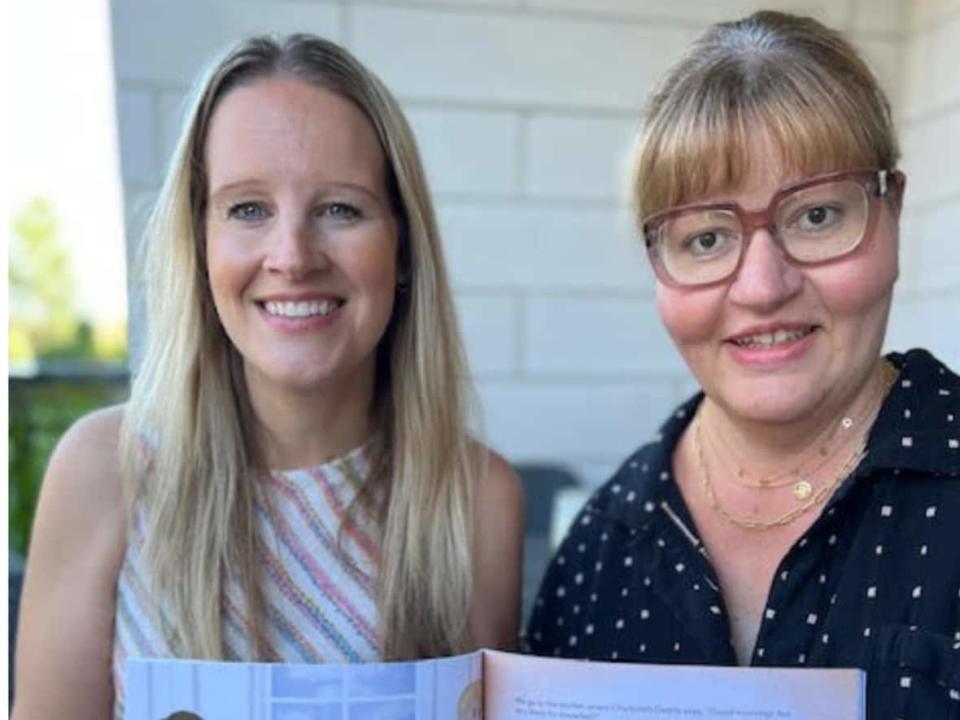Ontario authors pen children's book that teaches kids about disability

A new children's book is making young children more aware about a topic that does not always get much attention —disability.
Charlotte's Shadow is about a dog named Shadow and his human, Charlotte. The book is told from the perspective of Shadow, and the end of the book features a surprise.
"Over time, we had this idea, and with COVID, it gave us the opportunity to actually sit down and put something together," said co-author Anne-Marie DePape. "Based on the need in the field, and then also based on our professional experience."
DePape is a developmental psychologist, and her co-author, Christine Quaglia, is a social worker.
Quaglia, an advisor with the University of Windsor's Office of Student Accessibility Services, has lived with a disability and is a wheelchair user.
LISTEN: Christine Quaglia joins Windsor Morning
She and DePape noticed a lack of books about disability during their childhoods.
"I think kids imaginatively put themselves in stories, and I did that as well," Quaglia said. "But whenever I would put myself into any of the books I read, I was never in a wheelchair because I had never seen myself between the pages of those books. I think that planted the seed in my mind about representation in children's literature."
Quaglia said they have gotten a lot of positive feedback from children, parents and teachers who have read the book.
"They're telling us that they love the relationship between Charlotte and Shadow," Quaglia said. "They love seeing the world through his eyes, and in particular, seeing Charlotte through his eyes. What we're hoping that parents and children and educators take away from the book, and what we're seeing that they're taking away, is that this is a universal story."
DePape also said it's a story everyone can relate to.
"Even though Charlotte is our primary character, and she has a disability, it's a message about inclusion, and it's a message about friendship and unconditional love," she said.

